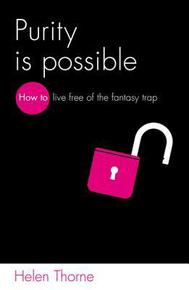The Edge of Words - Rowan Williams
Bloomsbury
* * * * *
‘Confession’, the say, ‘is good for the soul’. So I might as well be honest and say that up until two years ago, I had not read a single book by the former Archbishop of Canterbury Rowan Williams. I also should also, rather ashamedly, admit that in terms of his writing, I was rather a smug evangelical with the idea that Rowan Williams’ works would not resonate with my flavour of churchmanship.
How wrong could I have been? On the recommendation of a friend I took the plunge and began reading through Rowan Williams’ works.
I began with; The Wound of Knowledge, then tried Silence and Honey Cakes – the wisdom of the Desert, and Dostoevsky: Language, Faith and Action. All these books were packed with razor sharp theological and intellectual insights and breath-taking literary analysis. Rowan Williams’ profound hunger to know and love God breaks through his peerless eloquence, lofty intellect and honesty. I was therefore full of expectancy as I prepared to read The Edge of Words. I was not disappointed.
In the book, Williams notes that our language is under severe strain when it comes to interacting with and trying and to describe an ineffable being. Williams admits, as we all must, that God is almost beyond words. He is indeed on the edge of words. However, God is willing to engage in communication, and part of the ‘humility of God’ is that he has used words that we can access at a number of levels.
Homo sapiens are hardwired to communicate in terms of personal relationships, and to use words in this process. Words that when applied to God, take on more significance than mere sounds. By using words about God and to address God, we experience the edginess of language and experience personally, and perhaps ‘mystically’ who we are talking about. I also appreciated Williams’ juxtaposition of language and silence, ‘Our safest eloquence...is silence,’ he notes.
The Edge of Words is an intellectually and spiritually challenging book which I thoroughly recommend.
Review by Rev Dr Alan Palmer
Three Men on a Pilgrimage - Thomas Jones
Whispering Tree
>* * * *
As the title suggests, this book is a bit like a cross between the amusing banter of Three Men in a Boat and the strange encounters of Pilgrim’s Progress, where every character comes with a lesson attached. Yet Thomas Jones’ comical story does not push an agenda and offers no certainties, it just makes you think and does that brilliantly.
Every one of the many short chapters challenges our assumptions and presuppositions. The dialogue covers major issues like evolution and religion, homosexuality, the nature of evil, the existence of suffering and the diminishing need for God in a world of science.
The story is about three men (and a dog) making an unusual pilgrimage to Canterbury Cathedral. As they journey together they explore some of the great questions of faith. In villages, campsites and pubs the three friends encounter people who challenge their views on everyday life. One man, (whose name is Dorking), doesn’t believe in atoms and presents his arguments in the same way as someone who doesn’t believe in God. Another man thinks that people who sleep the wrong way round in bed should be executed. Then there is a philosopher struggling with the fact that an orange is both round and orange.
And so it goes on, cleverly blending serious theological questions with real life situations, a parody of what people think and say in religious debate. A creative, funny and subtle book that unmasks false arguments and subverts cherished opinions, leaving the reader both chuckling and thinking much more deeply.
At the end of the pilgrimage, after feeling they have failed, a mysterious Big Issue seller blesses the three friends and is revealed as someone who is more than he appears. Their real pilgrimage, it seems, is just beginning.
Review by Paul Valler
Purity is possible: How to live free of the fantasy trap - Helen Thorne
The Good Book Company
* * * *
If we’re serious about wanting people outside the church to come in and find Christ, we have to be able to understand and disciple people who have come out of our hyper-sexual culture, and be ready to help them to address all of their issues.
This book can be read more widely than just by people who consider themselves to have a problem with sexual temptation. It also has a lot to say about discipleship, pastoral care and singleness more generally.
The book focuses on three aspects of sexual behaviour: reading erotica (eg Fifty Shades of Grey), porn use and sexual fantasy. When the blurb said it was a book ‘for women’ I was sceptical but it genuinely does have an angle that is likely to have more feminine appeal.
Thorne takes a fairly typical Reformed approach of illicit sex as idolatry deserving of judgement, cleansed through the gospel, but makes it interesting and encouraging. I hope that it wouldn’t be shaming. If you’re not a fan of this theological stream, then the solutions might not float your boat. For example, it doesn’t explore solutions such as intimate prayer with God and healing prayer. But either way, this book should be a useful resource for women and anyone interested in evangelism, discipleship and pastoral care.
Review by Heather Tomlinson




























